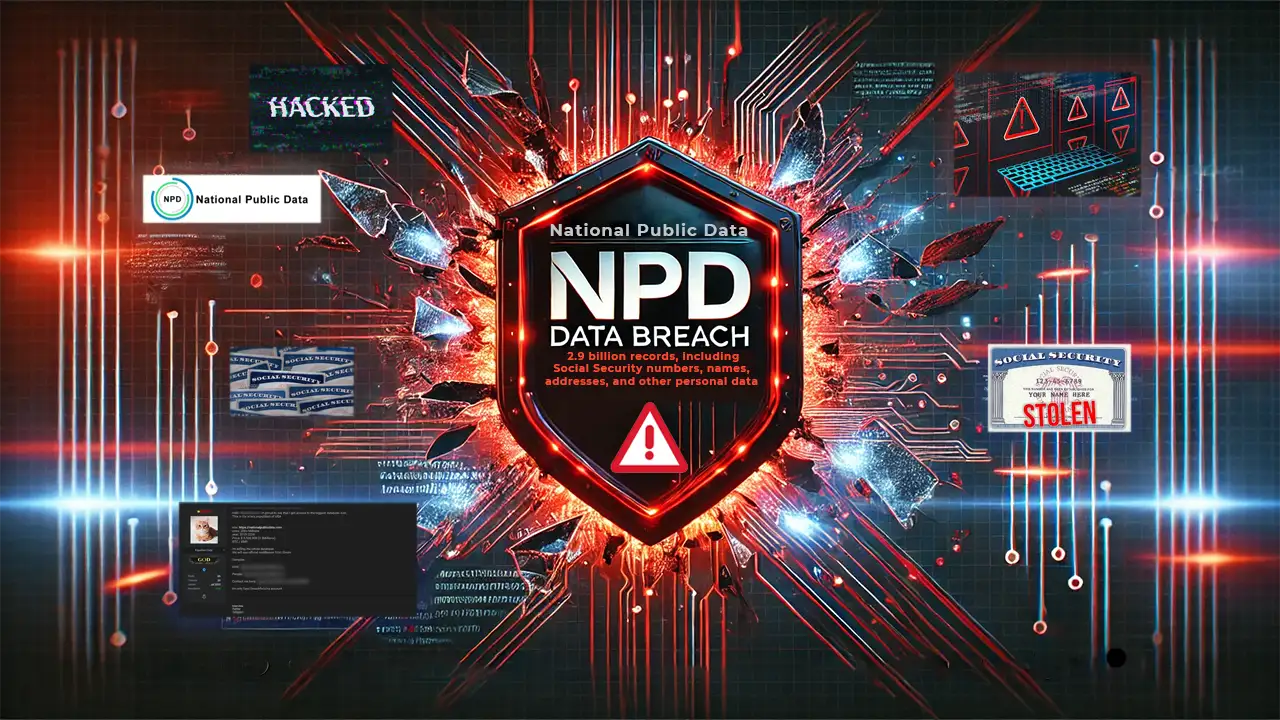National Public Data Breach Exposes 2.9 Billion Records | Essential Security Tips
National Public Data Breach is one of the largest data breaches in history, exposing the personal information of 2.9 billion records. This massive breach involves highly sensitive details like names, addresses, Social Security numbers, and even dates of birth, some dating back over 30 years.

Check if your info was exposed here: https://npd.pentester.com/
Freeze your credit at all three:
Equifax: https://www.equifax.com/personal/credit-report-services/credit-freeze/
Experian: https://www.experian.com/freeze/center.html
Transunion: https://www.transunion.com/credit-freeze
The National Public Data Breach is one of the largest data breaches in history, exposing the personal information of 2.9 billion records. This massive breach involves highly sensitive details like names, addresses, Social Security numbers, and even dates of birth, some dating back over 30 years.
We'll discuss why this breach is significant and how it could impact you and your loved ones. I'll guide you on checking if your information has been compromised using a third-party site that allows you to search without registration or exposing more of your data. This tool is straightforward and can give you a quick heads-up on whether you need to take immediate action.
I also want to thank my friend cwade12c for sharing this resource, which lets you check your data status in just a few seconds. In this video, I’ll also share some crucial tips on improving your operational security (OpSec) to protect yourself from identity theft and other potential crimes resulting from this breach.
Here’s a quick overview of what we’ll cover:
Using the third-party tool to check your data: A step-by-step guide on how to see if your personal information was leaked.
Securing your personal info: Tips on freezing your credit with Equifax, Experian, and TransUnion to prevent unauthorized access.
Monitoring financial accounts: Why it’s essential to regularly check your bank statements and credit reports and use services like Credit Karma.
Creating strong, unique passwords: I’ll share my approach to crafting secure passwords and why you should avoid services like LastPass.
Enabling multi-factor authentication (MFA): A must for securing your accounts, we’ll talk about how to set it up and why it’s worth the effort.
Dark web monitoring: Whether you should consider it and why it might be overhyped.
Deleting unused accounts: How to reduce your online footprint to minimize future risks.
Securing email and social media: Tips on how to prevent attackers from gaining access to your accounts through easily accessible personal information.
The breach has already led to multiple lawsuits, and I expect more legal actions and scrutiny to follow. This breach is a wake-up call for all of us to step up our security game. Whether you’ve been affected or not, now is the time to ensure your personal information is locked down as tightly as possible.




